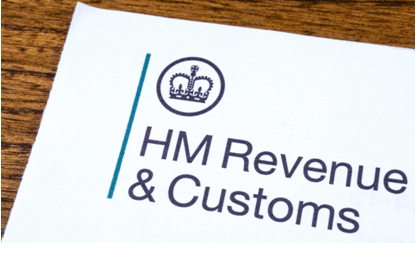Post-Brexit, importing goods is perhaps one of the most difficult challenges facing UK businesses. Whilst, on the surface, the zero-tariff agreement seemed to offer an easy solution to this issue, upon closer inspection it has become apparent that this agreement has come with many caveats. This article will outline exactly what you need to know before importing to the UK.
First Things First When Importing, EORI Number
The number one most important thing for you to do before attempting to import goods into the UK post-Brexit is to acquire an EORI number.
An EORI number – which stands for an Economic Operator Registration and Identification Number – is a unique ID code used to track and register customs information in the EU, and you can register for one as an individual or as a business here.
It is also worth noting that this EORI must begin with GB – if you already hold an EORI number that does not begin with GB you will need another. THE HMRC should have already issued you a new number if you are a UK VAT registered business with international trade but, if they have not, you must contact them as soon as possible.
For the convenience of trading between EU and UK, traders are suggested to register both UK and EU EORI number.
Import VAT Obligations
It is worth pointing out here that certain goods require the importer to obtain a licence or certificate from various UK government departments. This includes animals, plants, agricultural products, medicines, chemicals and weapons. Please ensure you check whether this applies to you before proceeding.
There are a few different options when it comes to settling your UK import VAT. One option is to make your customer pay under Deliver At Place Incoterms. However, since this is far from the norm and most customers will refuse to do business with you, we do not recommend this approach.
The simplest way of settling the VAT is just to pay it at customs. There is a way to defer this payment, but this will require you to set up a VAT deferral account. You can find the information on this on our previous article here.
The HMRC have announced a ‘soft-landing period’ in which they are giving importers the option of deferring the completion of customs declarations until June post-Brexit. However, please bear in mind that this does not apply to sensitive products such as medical products or livestock.
Customs Post-Brexit
When it comes to customs declarations it is usual, and, indeed, recommended, that you should employ the help of a customs intermediary as the process is very complicated.
If you are going to attempt to do it by yourself, you should be aware that you must obtain a commodity code for your product, and include this on your import declaration. This will determine the rate of duty you need to pay and if you need an import licence.
It will also allow you to work out the value of your goods. When you make your import declaration, you’ll need to include the value of your goods – this helps work out how much duty and VAT you’ll need to pay.
Tariffs – When They Apply When Importing
One of the most important things for importers to bear in mind when accounting for tariffs is the ‘rules of origin’.
Essentially, this means that no tariffs or quotas apply to trade between the two parties – as long as goods “originate” in the other party. Therefore, “origin” will be a key consideration for any businesses moving manufactured goods between the UK and the EU post-Brexit.
The rule of thumb for this is that at least 55% of the materials (and the processes by which they were made) must originate in the country of the selling party. Importers must be able to provide evidence of this, usually in the form of a certificate or documentation.
If the origin of the goods cannot be evidenced satisfactorily, tariffs may apply.
The £15 Low Consignment Relief No Longer Applies, £135 Is The New Magic Number
An import VAT regime has been introduced on 1 January 2021 for imports of goods/consignments valued at £135 or less. This will mean that UK supply VAT, rather than import VAT, will be due on these consignments.
HMRC clarifies that online marketplaces (OMPs) involved in facilitating the sale of imported goods, will be responsible for collecting and accounting for the VAT, even when the goods are in the UK at the point of sale.
These goods will pass immediately through UK customs if the customs declaration makes clear the sales VAT has been charged at the point-of-sale.
Conclusion – Be Aware Of The New Rules And Consider Getting Help
This guide provides an overview of how to import post-Brexit, but there are many rules that apply to individual products. The best you can do as an importer is make sure all your identification and documentation is in order, as well the documentation of your exporter, and consider appointing experts to help with your VAT and customs.
If you are a business who participates in cross border e-commerce, or importing of any kind, we would be more than happy to help you register for UK VAT, the UK VAT deferral scheme, EU and UK EORI number, file your UK and EU VAT returns, and help you comply with VAT in case your account faces any issues. At J&P, helping your business is our passion, and we understand that companies across the UK are at risk now more than ever. We are here to support you through Brexit, so please do not hesitate to give us a call on 0161 637 1080 or send an e-mail to enquiries@jpaccountant.com.
